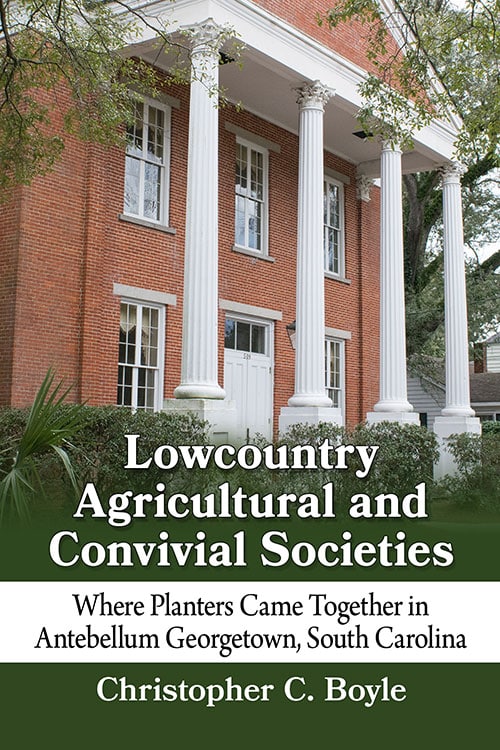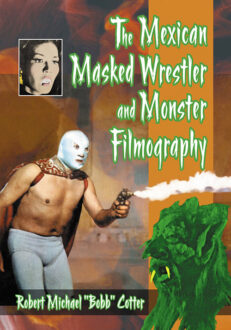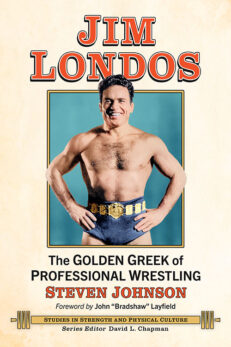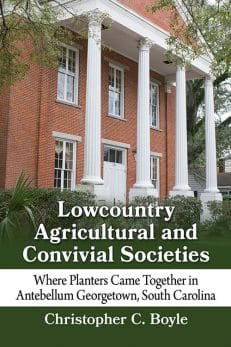Lowcountry Agricultural and Convivial Societies
Where Planters Came Together in Antebellum Georgetown, South Carolina
Original price was: $49.95.$24.99Current price is: $24.99.
In stock
About the Book
By the Antebellum period, rice had dominated the local economic, political, and social patterns of South Carolina’s Lowcountry for nearly two hundred years. This book explores the purpose of the social organizations as well as the moral, economic, cultural, and political challenges of the Georgetown rice planters. Within the protected confines of their organizations, planters felt safe discussing local and national politics, advancements to their educational system, and agricultural and livestock improvements to better compete with the Industrial North. The alliance of “brothers of the soil” helped solidify South Carolina’s Lowcountry politically. The agricultural alliances of the region promoted Southern Nationalism and provided one pillar for Southerners to the American Civil War.
About the Author(s)
Bibliographic Details
Christopher C. Boyle
Format: softcover (6 x 9)
Pages: 250
Bibliographic Info: 49 photos, appendices, notes, bibliography, index
Copyright Date: 2022
pISBN: 978-1-4766-8626-4
eISBN: 978-1-4766-4421-9
Imprint: McFarland
Table of Contents
Acknowledgments ix
Preface 1
Introduction: The Rise and Fall of the Georgetown Rice Culture 5
One. Georgetown’s Response to Social, Moral and Economic Challenges 21
Two. Georgetown’s Politicians and Media Promote Southern Nationalism 42
Three. The Lifestyle of the Georgetown Planter Class During the Late Antebellum Era 71
Four. The Winyah Indigo Society: From Inception to the Wilmot Proviso 86
Five. The Winyah Indigo Society: Teaching Southern Nationalism 104
Six. The Winyah Indigo Society in a Hall of Its Own 118
Seven. The Hot and Hot Fish Club of All Saints Parish 131
Eight. The Planters’ Club on the Pee Dee 146
Nine. The Winyah and All Saints Agricultural Society from Inception to the Wilmot Proviso 161
Ten. The Winyah and All Saints Agricultural Society from the Wilmot Proviso to Secession 176
Appendix I: Rules of the Winyah Indigo Society 189
Appendix II: Members’ Roll of the Hot and Hot Fish Club 196
Appendix III: Roll of Deceased Members of the Hot and Hot Fish Club: 1860 197
Appendix IV: Rules of the Hot and Hot Fish Club 198
Appendix V: The Members’ Roll of the Planters’ Club on the Pee Dee 201
Appendix VI: Members Who Joined the Planters’ Club on the Pee Dee After 1839 202
Appendix VII: The Constitution of the Winyah and All Saints Agricultural Society 203
Appendix VIII: The Members of the Winyah and All Saints Agricultural Society 206
About the Author 209
Chapter Notes 211
Bibliography 225
Index 235
Book Reviews & Awards
- “Christopher Boyle has very successfully answered the clarion call of the eminent historian, Thomas D. Clark, made many years ago that “the history of the United States is [but] the sum total of the history of its myriad parts. . . the sanctity of historical truth must spring as much from the common womb of local history as from that of the whole nation.’ Writing important and relevant local history is no small feat. And, Boyle has masterfully told the story of the development of southern nationalism in Georgetown, South Carolina, a cross roads of the intersection between local interests and partisanship and state and national developments propelling the sectional crisis. It is a well-written, well-researched, and well-conceived study that sheds important light on events that transcend the South Carolina low country. It is a very rewarding read.”—Jason H. Silverman, retired, Ellison Capers Palmer, Jr. Professor of History, Winthrop University





